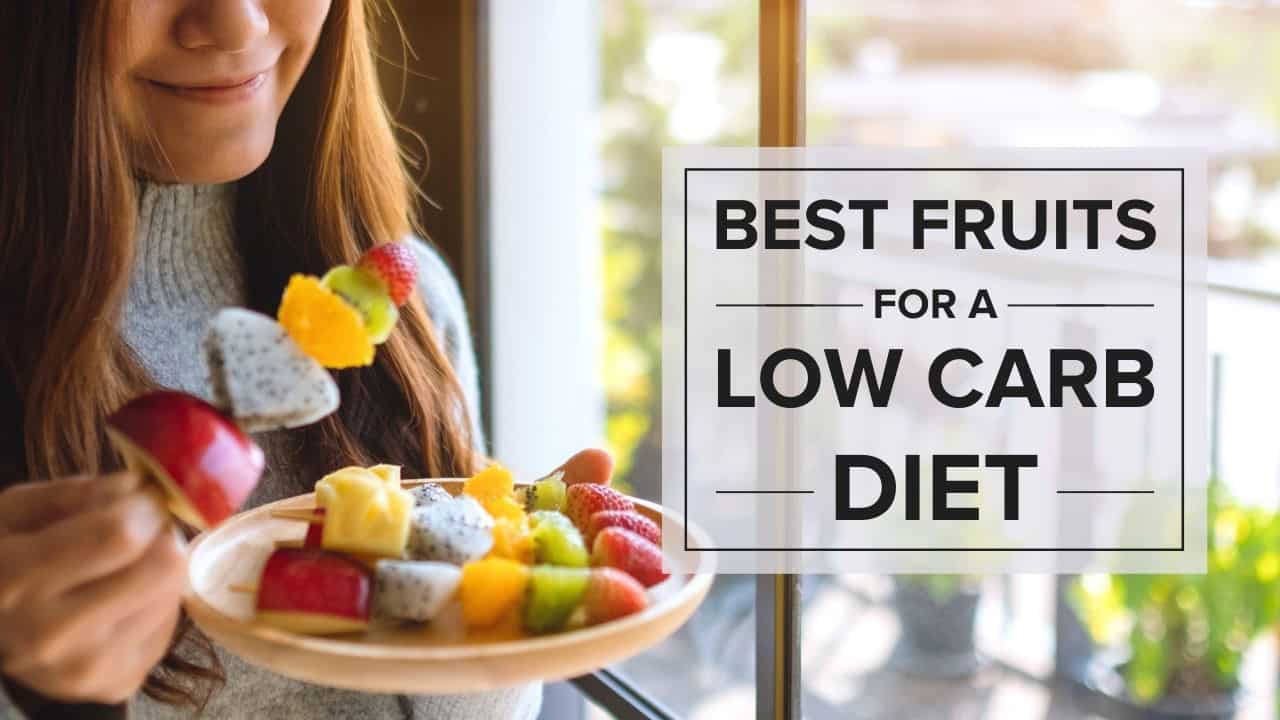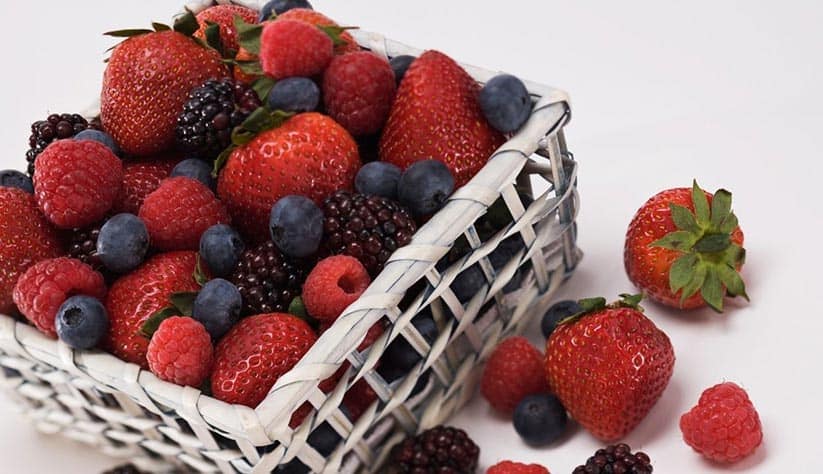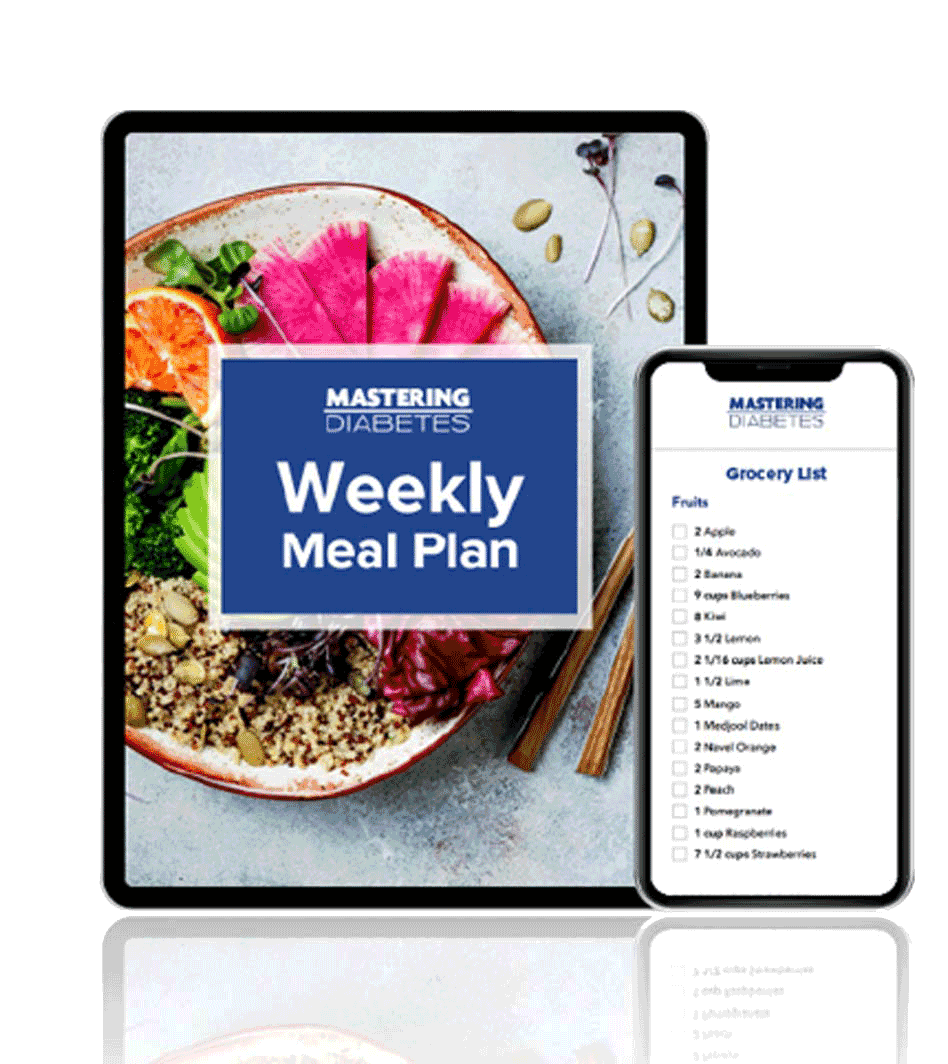
Is Fruit Bad for You?
The short answer? No, certainly not. In recent times, fruit has gotten a bad reputation, mostly due to some incomplete knowledge about added sugars and carbohydrates.
Since fruits are high in natural sugars (which are also known as complex carbohydrates), they’re often classified as unhealthy by those who avoid added sugars (a good idea anyway) and high carbohydrate diets (which is less of a good idea).
In this article, we’ll discuss what the sugar content of the fruit food group actually means for your health, and discuss why even though fruits have high grams of carbs, they can actually be a fundamental part of a healthy diet.
Sugar Content of Fruit
Over the past few decades we’ve become increasingly aware of the fact that added sugars negatively affect your health. It makes sense then, that people might be naturally wary of fruits, which are often deliciously sweet and high in natural sugars.
However, this association is misleading. The natural sugar found in fresh fruit, fructose, is most often found as a complex sugar, which is very different from simple, added sugars.
The key difference is that simple sugars are processed into your blood incredibly quickly, which can spike your blood glucose and cause a rapid insulin response. It’s almost a ‘shock’ to your body, which is not adapted as well to digest these processed sugars.
Natural sugars on the other hand, are often encased in key fibers and nutrients that take longer to break down. Taking longer to break down means a steadier release of energy, which your body is well equipped to handle, and you also get the added benefits of other key nutrients.
We definitely recommend avoiding added sugars, but the sugars found in fresh fruits are a completely different compound altogether.
You can learn more about the difference between these fundamentally different types of sugar in our article here.
Note: It’s important to note that many fruit and vegetable juices, which lack the fiber content of fresh fruit and veggies, may not have these key nutrients, and may also contain added sugars. Always check the ingredients of these juices before writing them off immediately as ‘healthy’.
Health Benefits of Fruit
There are many, many health benefits of eating fruits, especially when compared to the risks of diets high in meats, fats, or added sugars.
Aside from their powerful and tasty flavors, fruits are an excellent source of whole carbohydrates, which provide prolonged energy that your body is well-adapted to handle.
They’re also high in key nutrients like fiber, vitamin C, and vitamin A, and tend to have a high water content that leaves you more hydrated after eating them.
We highly, highly recommend all forms of fruits as a staple of your diet, which is backed by a vast body of evidence that shows that higher fruit consumption can help cause:
In summary, there’s a lot that fruit can do for you.
Can Diabetics Eat Fruit?
One common misconception is that people with diabetes can’t or shouldn’t eat fruits, because they’re high in natural sugars. And while, for those with diabetes, the whole carbohydrates in fruits can spike your blood glucose, this doesn’t cover the whole picture.
The underlying cause of type 2 diabetes is insulin resistance. Insulin resistance results from the accumulation of excess dietary fat in cells that are not meant to store large quantities of fat, which inhibits the action of insulin.
If you have insulin resistance, a steady arrival of glucose into your system from carbohydrates can indeed spike your blood glucose.
However, research showed that reducing your fruit intake over time had no effect on weight and A1c, key biomarkers in diabetes. In fact, in the long term, fruits can actually be a crucial part of reversing your insulin resistance, by helping reduce your overall dietary fat intake.
So while high-glucose fruits may contribute to blood glucose spikes in the short term, as a part of a balanced diet, they can be major contributors to reversing insulin resistance and type 2 diabetes. For more information on fruit for diabetes, you can explore our article here.
Are Bananas Bad for You? Are Apples Bad for You?
The short answer here is again, no.
Recently, some high-carbohydrate fruits like bananas and apples have also been cast under suspicion due to the glycemic index, which measures the rise in blood glucose a certain food causes after eating.
However, we don’t recommend using the glycemic index as a guide, because it gives an incomplete picture. Some fruits like apples, bananas, and watermelons score high on the glycemic index because the glucose from these foods absorbs quickly into your blood.
Again, if you have consistently high blood glucose and bad insulin resistance, these fast-absorbing high-carbohydrate fruits may be worth limiting, at least until you can reduce your level of insulin resistance.
But overall, as we mentioned above, these fruits can be a fundamental part of reversing insulin resistance over time.
To learn more about the glycemic index andd why it’s imperfect as a reference for long term health (both for people looking to avoid diabetes and those with diabetes), you can explore our article here.
Are Avocados Bad for You?
In large quantities, and especially as part of a high-fat diet, avocados actually do pose a long term health risk. Though avocados are a whole food and a natural source of many key nutrients, they are very high in dietary fat.
And as we mentioned above, dietary fats, no matter how naturally they occur, can increase your risk for developing insulin resistance.
However, on the scale of all foods to avoid, avocados are way, way down the list, and when consumed in moderation they can actually provide a net-positive benefit thanks to their nutrients.
That’s why we classify avocados as a yellow light food, to be eaten on occasion. To learn more about green, yellow, and red-light foods, you can explore our dietary guide here.
The Best Low Carb Fruits List

The evidence points to nearly all fruits as ad libitum staples of any diet, meaning you can eat them as much and as often as you’d want (with the exception of some high fat fruits like durian and avocado).
However, if you’re looking for the best fruits that boost your overall health, along with keeping your overall carbohydrates down (especially during the early phases of insulin resistance), the following fruits are among the best.
Raspberries
Raspberries are exceptionally high in antioxidants, and may have anticancer, anti disease, and blood glucose lowering properties.
Blackberries
Blackberries are very high in vitamin C, and there are signs that they also boost brain health.
Blueberries
Blueberries are one of the highest antioxidant fruits, and have evidence based benefits for your cells, cholesterol, and cardiovascular system. You'll find the same is true of many, many other berries!
Watermelon
Though watermelon is higher on the glycemic index, its low carbohydrate value and exceptionally high nutrients + water content makes it an excellent staple in your diet.
Cantaloupe
Another fruit packed with energy and nutrients despite its low caloric content and high water content. The beta-carotene, folate, and vitamins in cantaloupe have some powerful benefits.
Honeydew Melon
Honeydew is another fruit that presents an argument against the glycemic index. Despite its higher value on this scale, honeydew melon is a low-calorie, low-carb fruit that’s good for your bones, your skin, and your digestion.
Starfruit
Much like many other fruits, starfruit is packed with key vitamins and minerals despite its low caloric content. What sets starfruit apart, however, is its impressive quantity of polyphenols, which provide all-round benefits to your weight and digestion.
And What Fruits Should I Avoid (At Least in the Short Term)?
If you’re looking to keep your carbohydrates low and avoid spikes in your blood glucose, especially in the early days of transitioning to a plant-based diet to reverse insulin resistance, here are some notable, high-carbohydrate fruits and fruit products:
However, we recommend all of these fruits (and many more!) in the long term, as they can be a delicious, healthy, and energy-boosting part of a well-planned diet.
Low Carb Fruits and the Keto Diet

In recent times the ketogenic diet has become increasingly popular, especially among those with diabetes. The goal of this diet is much the same as all people struggling with diabetes are working for: to lower your A1c and other biomarkers, lose weight, and more effectively control your blood glucose.
These goals of this meal plan are to drastically lower your net carbs, forcing your body into a state called ketosis, which usually occurs during fasting. By lowering your carb count, your blood glucose naturally lowers, and your body begins to process fats for energy instead
While we believe that low carbohydrate fruits can be a valuable addition to your diet, especially if you’re currently struggling to control your blood glucose, we don’t recommend the keto diet in any way, shape, or form.
Though keto has many short term benefits, in the long term this diet drastically increases your insulin resistance, which is the underlying cause of type 2 diabetes. To learn more about some of the myths and misleading claims about the ketogenic diet, you can explore our article here.
The Final Word on Low Carb Fruits
If you’re currently healthy and active, and even if you’ve been diagnosed with prediabetes or early-stage insulin resistance, fruits of all kinds can be a fantastic addition to your diet, and the key to a nutrition plan that’s sustainable and tasty in the long run.
And if you’re currently struggling with insulin resistance associated with either type 1 or type 2 diabetes, these low carb fruits can be a great way to start the transition to a low-fat, plant-based, whole-food diet to reverse your insulin resistance in the long term.
At Mastering Diabetes, we’ve already helped thousands of people make the switch to a plant-based diet, and the results are powerful. So whether you’re looking to reverse diabetes or simply set up your diet for long-term health, we can help with our expert coaches and online resources.
Stop Guessing What to Eat
Get Delicious Recipes Sent to Your Inbox Every Week!

Discover the custom-designed Weekly Meal Plan that gives you clarity on what to eat and how to shop to simplify your journey to lower blood sugar, weight loss, and your best A1c






